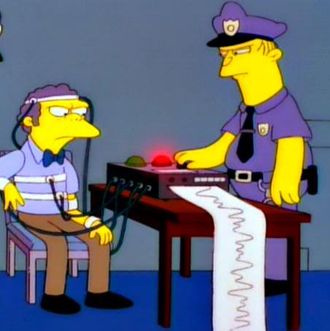
There are many interesting, compelling things about “Serial,” the extremely popular podcast on which journalist Sarah Koenig is investigating the 1999 murder of Hae Min Lee, a high-school senior at the time, for which her onetime boyfriend, Adnan Syed, is currently serving a life sentence. But a lot of these issues, when you think about it, boil down to one question: Can Koenig tell who’s lying and who isn’t? A great deal of psychological research suggests this is pretty unlikely.
If you haven’t listened to the podcast, you should (though you have probably already had multiple “Serial”-obsessed friends recommend it to you) — and you should be warned that there are minor spoilers ahead.
The story within the story in “Serial” is Koenig’s attempts to get to know the major players and make some sense of who is telling the truth — a process she relates to listeners with refreshing transparency. Either Adnan or Jay, a onetime buddy who claimed to have helped Adnan bury Lee’s body and whose testimony landed Adnan in jail (and garnered him a mere two years of probation), is lying. Koenig frequently remarks on the relative trustworthiness of the two men and is upfront about how her impressions of them have been shaped by her interactions with them.
Early on in the series, in one of its most famous sequences so far, Koenig says of Adnan after meeting him: “He has giant brown eyes like a dairy cow. That’s what prompts my most idiotic lines of inquiry. Could someone who looks like that really strangle his girlfriend? Idiotic, I know.” She also states that she “talk[s] to Adnan regularly, and he just doesn’t seem like a murderer.”
As her self-castigation suggests, Koenig’s no rube — she’s an experienced reporter and repeatedly wonders if Adnan is manipulating her. But she’s also a human being, and she doesn’t hide it. In the most recent episode, for example, Koenig and her producer, Julie Snyder, go to visit Jay at his home. He doesn’t want to be recorded, but he does agree to talk to them for a while, and Koenig records the debrief she has with Snyder in the car afterward (this starts at 22:48):
Koenig [narrating]: He left a strong impression, on Julie maybe even more than on me.
Snyder: Even just hearing him so forcefully deny, you know, and so forcefully say, “I know he did it.” You know, it’s — you’re face to face, he’s right there, he’s a person, he’s saying it, he seems like he really means it. This is not pleasant for him to talk about it. So, you know, it sounds believable.
Koenig: I totally saw the appeal of him as like, a person and a friend and a witness.
How much stock should we put in these impressions? Is there much reason for us, the viewers, to trust Koenig’s judgement about who is and isn’t telling the truth? It seems unlikely that Koenig herself would claim any superpowers in the lie-detection department, of course — part of the reason she’s such an engrossing and sympathetic host is that she doesn’t hide the fact that she’s as perplexed as the rest of us — but she does seem to think she can garner something of value by trying to evaluate the dispositions of Jay and Adnan.
I emailed Dr. Bella DePaulo to get her thoughts. DePaulo is a psychologist and author who currently studies and writes about single life, but she’s done a lot of research into the question of whether humans can tell when other humans are lying.
“Generally, people are not very good at all at detecting lies,” she said in an email. “When my colleague Charlie Bond and I analyzed all of the studies that had ever been conducted of people’s ability to detect deception, we found that on the average, people are right about 54 percent of the time at knowing whether someone is lying or telling the truth — that’s when, by chance (just by guessing), they would be right 50 percent of the time.” She said it’s possible that certain individuals are particularly talented at this, but there isn’t any compelling evidence yet to support this notion: “The number of documented [lie-detecting] ‘wizards’ is no greater than you would expect by chance, given how many different people have been tested.”
It also doesn’t appear that getting to know someone improves your ability to catch them in a fib. “One study, for example, found that the romantically involved were no better at detecting their partner’s deception than a perfect stranger — in fact, they were more likely to be biased toward believing that their partner was telling the truth,” she said.
Finally — and this doesn’t apply directly to the generally humble Koenig, but is worth pointing out — you shouldn’t trust people who claim to be talented lie-detectors. “In an analysis my colleagues and I did of all of the studies we could find on the relationship between confidence and lie-detection accuracy, we found that the relationship was zero,” DePaulo wrote. “That means that people who think they are good at detecting deception are actually no better (and no worse) at it than people who think they are not good at it.”
None of this means it’s a pointless exercise for Koenig to try to get to know Adnan and Jay, of course — the more a source trusts you, the more information he’s likely to give you. But it does mean that Koenig and her listeners should take their impressions of Adnan and Jay with a grain of salt as this addictive mystery continues to unfold.




